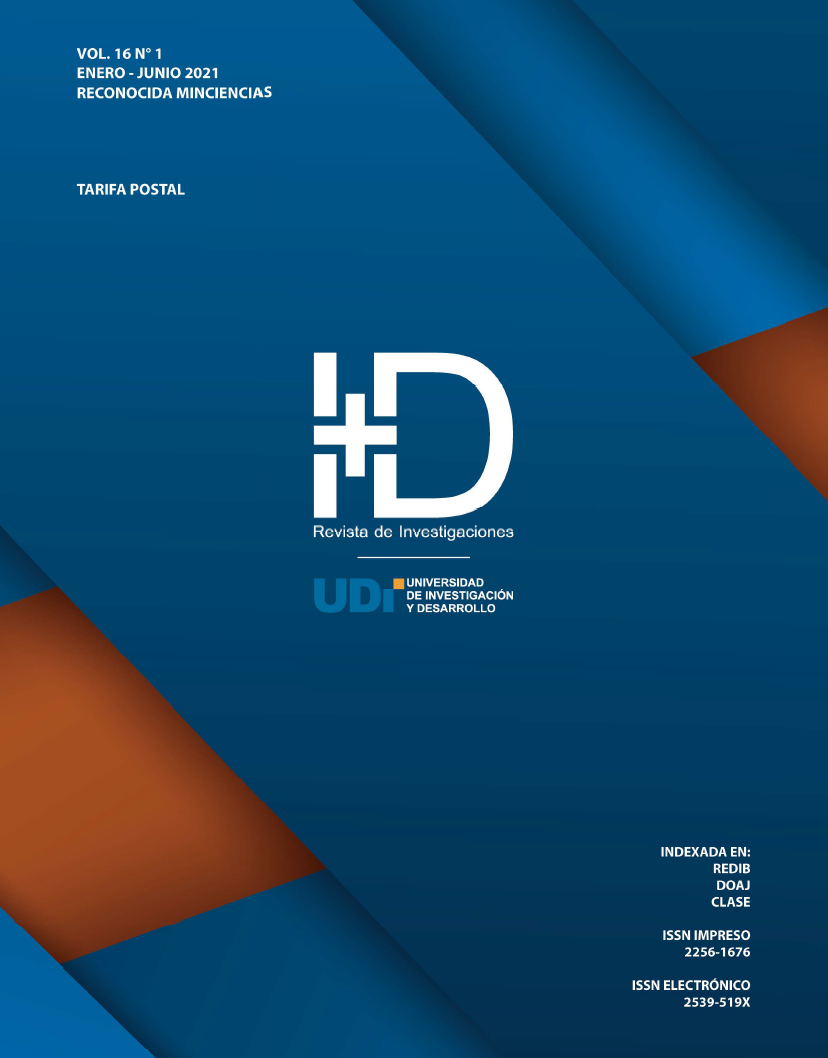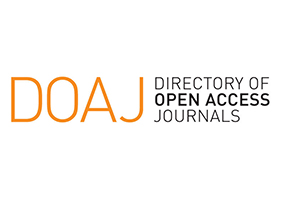“Trans-Localizando”, a hands on activity to study the location-routing problem
DOI:
https://doi.org/10.33304/revinv.v16n1-2021011Keywords:
Playful activity, mathematical model, location problem, routing.Abstract
This paper presents a proposal of a playful activity designed for studying the location-routing problem, in the course of Diseño de Cadenas de Suministro, in an Industrial Engineering program at a Colombian university. For the selection and design of the playful activity, the following phases were developed: prioritization of the themes through the analysis of the degree of difficulty and degree of motivation variables, configuration of the playful activity and the preliminary validation to assess the degrees of compliance and relevance. The theme was selected as one of the priority topics for intervention since it presented the highest mean value for the degree of difficulty and the degree of interest. The playful activity simulates a supply chain with two levels and includes the following decisions: 1) to determine which (out of three options) wholesalers should open to serve four retailers; 2) to allocate retailers to the open wholesalers, and 3) to deliver routes that start and finish in each wholesaler, so that the costs of the supply network (investment and transport) are minimized. The structure of the activity includes general information (related to the subject), context, roles, objective, parameters, bonuses, detailed instructions, duration, and resources required. In the validation phase, all the participants considered that the game met the goal, it was relevant and interesting.Downloads
References
Acosta-Medina, J. K., Torres-Barreto, M. L., Alvarez-Melgarejo, M. y Paba-Medina, M. C. (2020). Gamificación en el ámbito educativo: Un análisis bibliométrico. I+D Revista de Investigaciones, 15(1), 30–39.
Carvajal, N., Padilla, S. y Rocha, J. (2019). ¡Pizza caliente ya! Método de Clark and Wright para ruteo de vehículos. VII Encuentro de La Red IDDEAL. https://peewah.co/events/septimo-encuentro-nacional-red-iddeal
Contreras Espinosa, R. S. y Eguia, J. L. (2017). Experiencias de gamificación en aulas. InCom-UAB Publicacions.
Escobar, J. W., Linfati, R. y Adarme Jaimes, W. (2015). Problema de localización y ruteo con restricciones de capacidad: Revisión de la literatura. Facultad de Ingeniería, 24(39), 85-98.
Karaoglan, I. y Altiparmak, F. (2015). A Memetic Algorithm for the Capacitated Location-Routing Problem with Mixed Backhauls. Computers & Operations Research, 55, 200-216. https://doi.org/10.1016/j.cor.2014.06.009
Laporte, G. (1987). Location-Routing Problems. https://www.osti.gov/etdeweb/biblio/6622976
Lau, A. K. (2015). Teaching Supply Chain Management Using a Modified Beer Game: An Action Learning Approach. International Journal of Logistics Research and Applications, 18(1), 62-81. https://doi.org/10.1080/13675567.2014.945398
Linfati, R., Escobar, J. W. y Gatica, G. (2014). Un algoritmo metaheurístico para el problema de localización y ruteo con flota heterogénea. Ingeniería y Ciencia, 10(19), 55-76. https://doi.org/10.17230/ingciencia.10.19.3
Méndez Coca, D. (2011). Didáctica y aprendizaje de los conceptos básicos de la termodinámica [tesis de doctorado, Universidad Complutense de Madrid]. Repositorio institucional: https://eprints.ucm.es/14722/
Prins, C., Prodhon, C., Ruiz, A., Soriano, P. y Wolfler Calvo, R. (2007). Solving the Capacitated Location-Routing Problem by a Cooperative Lagrangean Relaxation-Granular Tabu Search Heuristic. Transportation Science, 41(4), 470–483. https://doi.org/10.1287/trsc.1060.0187
Saracche, W. y Morales, M. (2016). Localización, transporte e inventarios. Tres decisiones estructurales en el diseño de cadenas de abastecimiento. Universidad Nacional de Colombia.
Sarmiento, J. y Rodríguez, V. (2019). The Supply Chain Game. VII Encuentro de La Red IDDEAL. https://peewah.co/events/septimo-encuentro-nacional-red-iddeal
Shute, V. J. y Ke, F. (2012). Games, Learning, and Assessment. En D. Ifenthaler, D. Eseryel y X. Ge (eds.), Assessment in Game-Based Learning (pp. 43-58). Springer. https://doi.org/10.1007/978-1-4614-3546-4_4
Sterman, J. D. (1989). Modeling Managerial Behavior: Misperceptions of Feedback in a Dynamic Decision Making Experiment. Management Science, 35(3), 321–339. https://doi.org/10.1287/mnsc.35.3.321
Villa Sánchez, A. y Poblete Ruiz, M. (2011). Evaluación de competencias genéricas: Principios, oportunidades y limitaciones. 63(1), 147–170.
William, L., Abdul Rahim, Z. Bin, De Souza, R., Nugroho, E. y Fredericco, R. (2018). Extendable Board Game to Facilitate Learning in Supply Chain Management. Advances in Science, Technology and Engineering Systems Journal, 3(4), 99–111. https://doi.org/10.25046/aj030411












